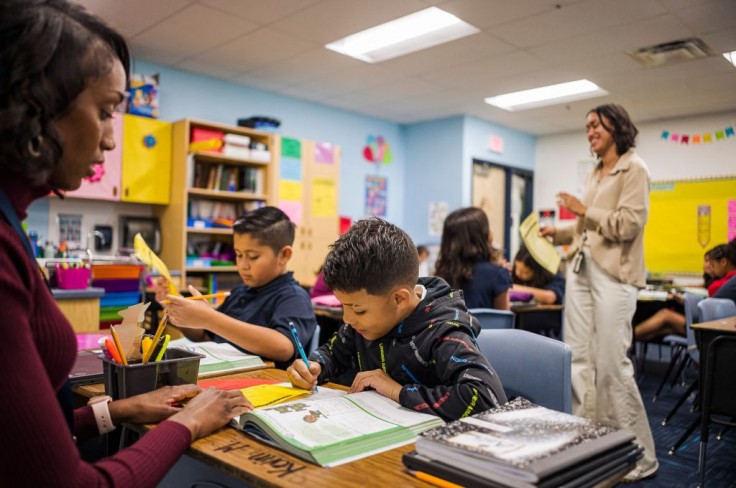
Amidst an unrelenting heatwave sweeping through the nation, educators and experts are grappling with a dire classroom heatwave crisis. The rising temperatures in schools are creating a perfect storm of discomfort and academic challenges for students. As the mercury climbs, students are faced with the dual task of learning amidst extreme conditions.
Sweltering Classrooms: An Unbearable Reality
As students return to school for a new academic year, they are confronted with an uncomfortable reality-classroom heatwaves are becoming the norm.
The rising temperatures in schools have transformed once-refreshing classrooms into stifling spaces. This relentless heatwave is more than just a meteorological phenomenon; it's a pressing concern for educators like fourth-grade teacher Emily Heath from Florida's Polk County.
Heath recounts hearing her students' complaints about the unbearable heat, which led to concentration issues, throbbing headaches, and pervasive sweatiness. "The learning environment has turned hostile due to the heat," Heath laments.
Rising Temperatures' Academic Impact
The academic challenges brought on by classroom heatwaves are not to be underestimated.
Research conducted in 2020 highlights the direct correlation between rising temperatures in schools and compromised learning outcomes. With each passing day of elevated temperatures, the academic challenges amplify.
The study underscores that students exposed to classroom heatwaves, particularly those around or above 80 degrees, experience noticeable academic setbacks. This impact is accentuated in districts with limited resources, where the disparities in learning outcomes are stark.
Educators like Tawni Eckley, who teaches fourth grade in Colorado, concur with the research findings. Eckley witnesses the academic challenges firsthand as her students grapple with focus issues due to the oppressive heat.
Urgent Call for Comprehensive Solutions
According to recent research from the National Council on School Facilities, 41% of schools have encountered issues related to their heating, ventilation, and air conditioning (HVAC) systems.
This problem is not limited by geographical norms; even schools in regions like St. Paul, Minnesota, where cold temperatures were historically the main concern, now grapple with cooling challenges due to more frequent and severe heat waves linked to the ongoing climate crisis.
The ramifications of overheated classrooms are twofold, impacting students' health and educational experiences.
A 2020 study published in "Nature Human Behaviour" encompassing 12,000 school districts found that temperatures exceeding 80 degrees Fahrenheit had an adverse effect on standardized test scores.
More alarmingly, the Environmental Protection Agency (EPA) has cautioned that rising temperatures from climate change could potentially undermine students' academic achievements and future income prospects.
In response, schools like those in St. Paul are taking innovative steps, allocating substantial funds, including federal grants of $28.4 million, to upgrade air conditioning systems and create conducive learning environments that counter the challenges of extreme heat.
As rising temperatures continue to test students' resilience in schools, educators are facing an uphill battle to create conducive learning environments.
The classroom heatwave crisis underscores the urgent need for investment in infrastructure, technological upgrades, and policy changes.
While the heat poses daunting academic challenges, it also presents an opportunity for communities to come together, advocate for change, and ensure that every student has the chance to thrive, regardless of the temperature outside.
Related Article: Tribal Sovereignty Prevails in Parental Kidnapping Case